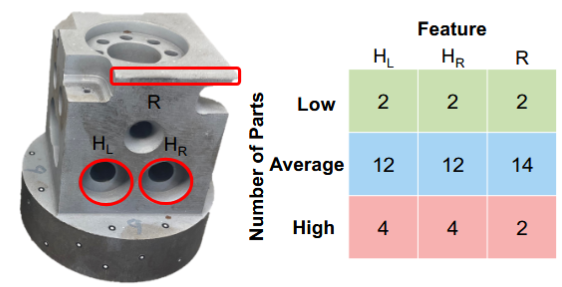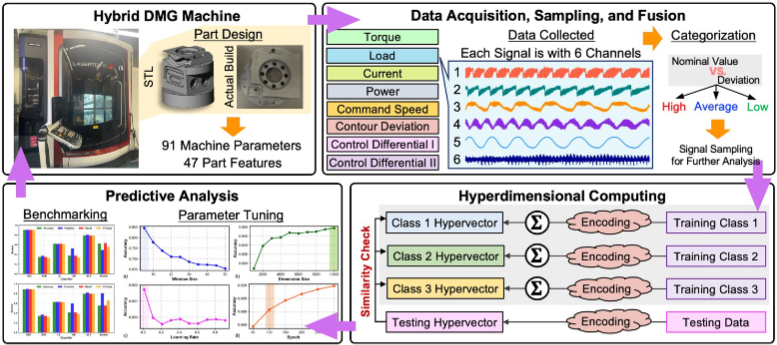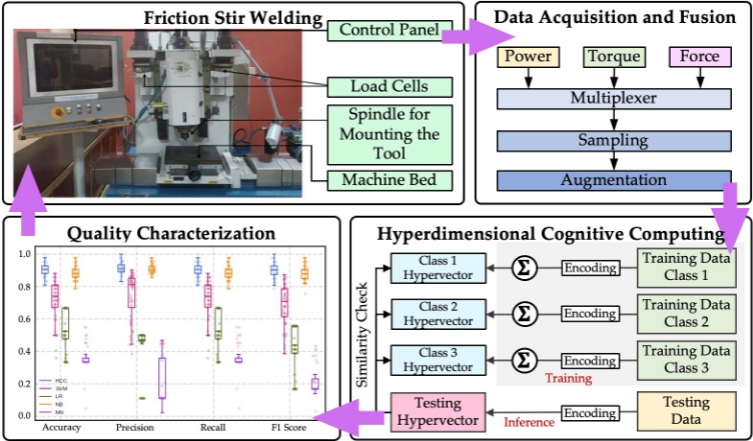Peer-reviewed work and other publications.

Hierarchical Representation and Interpretable Learning for Accelerated Quality Monitoring in Machining Process
CIRP Journal of Manufacturing Science and Technology, 2024
This research introduces a novel graph-based hyper-dimensional computing
framework that not only assesses work-piece quality on-edge in 5-axis CNC
machining, but also characterizes the key signals vital for evaluating
quality from in-situ multichannel data.
Read paper (PDF)

Multi-Task Brain-Inspired Learning for Interlinking Machining Dynamics With Parts Geometrical Deviations
International Manufacturing Science and Engineering Conference, 2024
We introduce MTaskHD, a novel multi-task framework, that leverages
hyperdimensional computing (HDC) to effortlessly fuse data from
various channels and process signals while characterizing quality
within a multi-task manufacturing operation.
Read paper (PDF)

Edge Cognitive Data Fusion: From In-Situ Sensing to Quality Characterization in Hybrid Manufacturing Process
International Manufacturing Science and Engineering Conference, 2023
This paper introduces hyperdimensional computing (HDC) to fuse load, current, torque,
command speed, control differential, power, and contour deviation which provides
robust, sample-efficient, and explainable learning of quality characterization.
Read paper (PDF)

Data Fusion Cognitive Computing for Characterization of Mechanical Property in Friction Stir Welding Process
International Design Engineering Technical Conferences and Computers and Information in Engineering Conference, 2023
This research introduces hyperdimensional cognitive computing (HCC) that
mimics human brain functionalities to fuse power, torque, and force data
to provide robust, sample-efficient, and explainable learning for process-property
characterization in friction stir welding.
Read paper (PDF)


